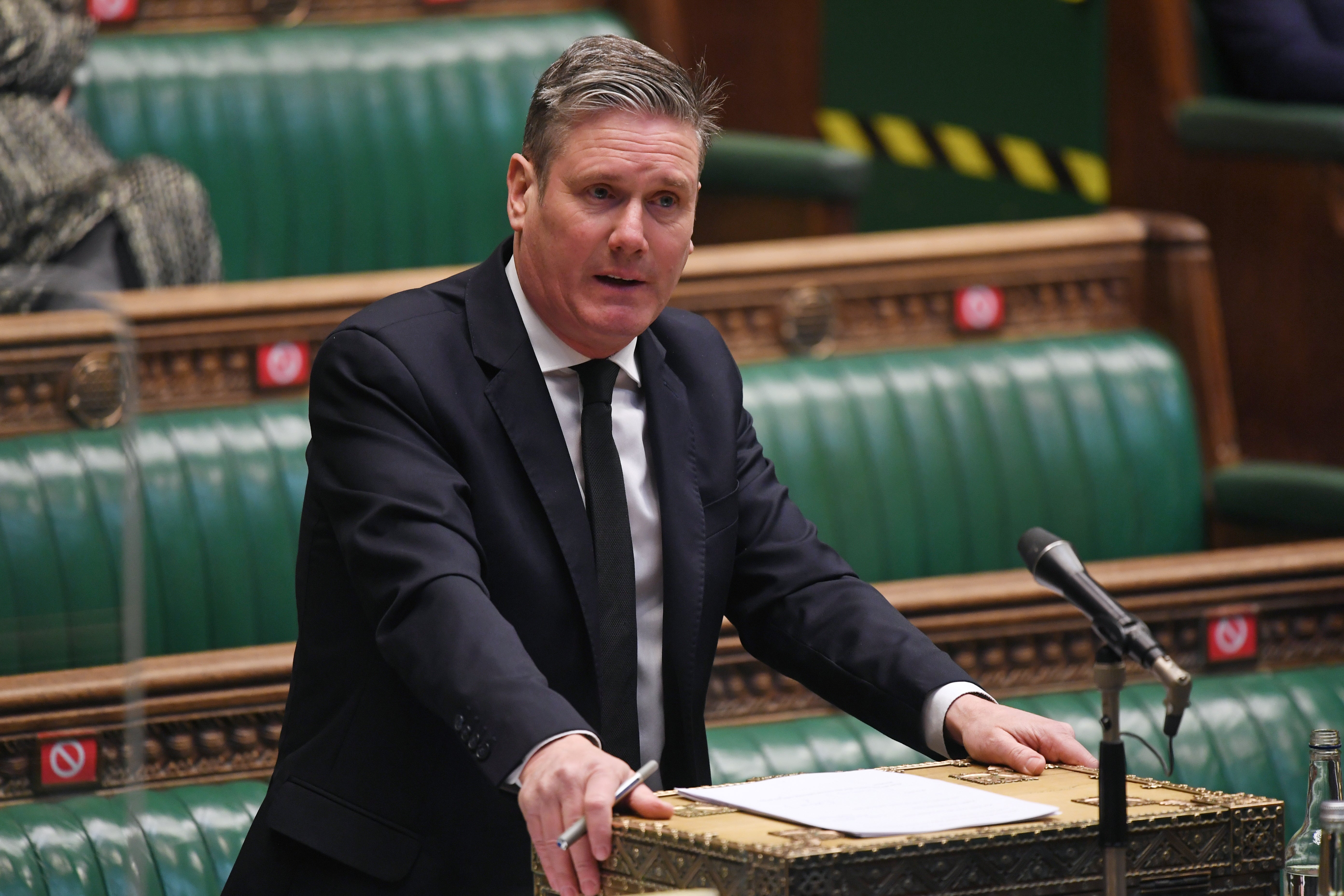Keir Starmer looked desperate in attacking government ‘sleaze’ at PMQs – but the tactic may work
The Labour leader seems to hope that if he says the word often enough, he will ‘win’ out in any Commons clash with Boris Johnson, writes John Rentoul


Keir Starmer asked the question that I assumed he would avoid, because Boris Johnson’s answer was so obvious: “What does the prime minister think is the right thing to do if he receives a text message from a billionaire Conservative supporter asking him to fix tax rules?”
The BBC had just published a transcript of Johnson’s text exchange with entrepreneur James Dyson from a year ago, in which Dyson asked to clarify the tax status of his staff if they came to the UK to help with producing ventilators in the early stage of the coronavirus epidemic.
Johnson gave the obvious answer: “I make absolutely no apology at all for having done everything I possibly could – any prime minister would in those circumstances – to secure ventilators for the people of this country.”
I think that is how most floating voters would see it. Johnson was certainly helped by Tony Blair on the Today programme this morning saying he found it “hard to get worked up about” the Dyson story.
The same goes for Labour’s criticism of the government’s attempts to buy up personal protective equipment. Corners may have been cut – including the less than shocking revelation that contract documents were not always published within the 28 days required by law – but most voters accept that different rules apply in a national emergency.
No wonder the Labour leader quickly switched subject, asking about job losses at Liberty Steel and trying to link them with David Cameron’s lobbying on behalf of Lex Greensill. That doesn’t work either, because Greensill Capital’s collapse was hardly the result of the former prime minister’s (unsuccessful) lobbying.
And Johnson is a ruthless enough politician to turn any question about jobs in the steel industry to the record of the last Labour government, when the number of steel jobs fell by 50 per cent, and to the opportunities for his government to support the steel industry now that we are out of the clutches of EU state aid rules. (Awkward questions about the environmental cost of steelmaking and the desirability of subsidies being swept effortlessly aside.)
So Starmer was thrown back on the cheap device of linking standard policy questions to “Tory sleaze”. Can the 3 million self-employed people excluded from coronavirus business support text the prime minister’s personal phone to ask for a tax break? Can nurses text the prime minister to ask for a pay rise?
Starmer’s tactic was transparent. Mention Tories and their cronies texting each other for favours, and use the words “cronyism” and “sleaze” as often as possible. For his sixth and final question, Starmer was reduced to telling, not showing: “Sleaze, sleaze, sleaze. And it’s all on his watch.” It was a feeble line, which lost the moment in the chamber, but which was inevitably the clip that was used by the news bulletins soon afterwards.
It is a mark of Labour’s desperation that they have nothing more substantial with which to attack the government. It just about works for them, in that most people do not follow the detail of the Greensill, Hancock or Dyson allegations – a YouGov poll last week found 23 per cent said they were following the Greensill affair “closely” – but most voters are ready to believe the worst of politicians, and especially Tory politicians.
It is a depressing way to do Prime Minister’s Questions (PMQs): to throw a lot of barely justifiable mud in the hope that more of it will stick to your opponents than to the trade of politics generally.
Johnson fought back, but he cannot avoid the eternal truth that “Tory sleaze” is generally more convincing than the “Labour” variety – which may reflect a marginal probity advantage on the left, or it may simply reflect the longer time spent by Tories in office.
And the prime minister will find it odd that his personal texts made it into the public domain on the morning of PMQs. With Cameron’s lobbying by text of Rishi Sunak, the chancellor, being leaked to the Financial Times and some of the former prime minister’s emails later becoming public, it does suggest that some parts of the civil service have decided that it is in the public interest to disclose things that ministers did not intend to disclose.
There are important questions of propriety here, but Starmer seems engaged in the low politics of simply intoning the word “sleaze” without bothering with any of that “forensic” nonsense about proving his case. I fear it may work.
Join our commenting forum
Join thought-provoking conversations, follow other Independent readers and see their replies
Comments